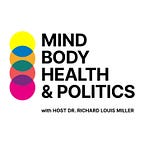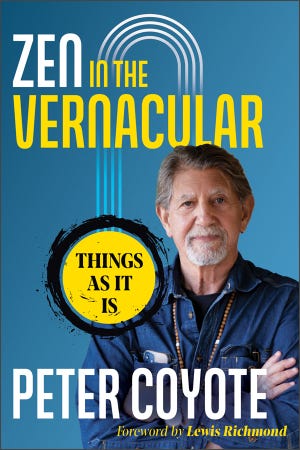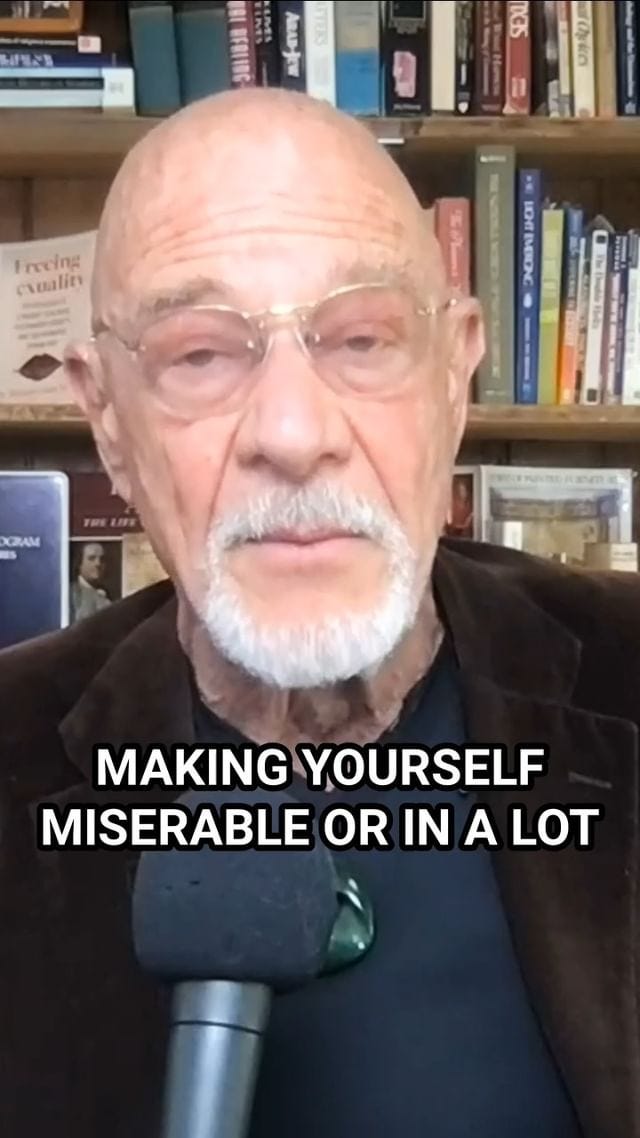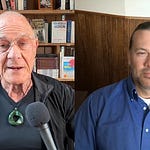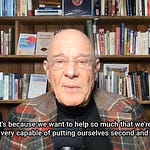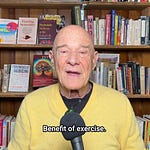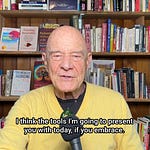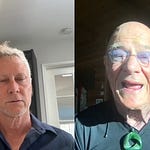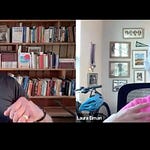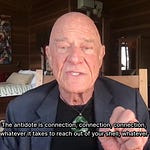Dear Friends,
How can we find peace and purpose amid the turmoil and distraction of the modern world? Actor, author, and Zen Buddhist priest Peter Coyote believes the answer lies in the timeless wisdom of Buddhism – translated for our modern lives.
In my latest interview, Peter and I explore:
The Buddhist concept of "dependent origination" and its relevance to our interconnected world
How meditation can help us contain and investigate our emotions, leading to more dignified living
The power of "radical optimism" in the face of life's uncertainties
Applying Buddhist principles to navigate personal and societal challenges
"Buddha discovered that everything in the world is connected to everything else," Peter told me. "He called it dependent origination. You can understand it immediately when you understand that we've never been separate from oxygen, from sunlight, from water, from microbes in the soil."
This interconnectedness forms the foundation of Buddhist thought and practice. But how does it apply to our daily lives?
Peter's new book, Zen in the Vernacular, strips away the cultural trappings to reveal the core of Buddhist teachings in accessible, everyday language. He shared with me how these ancient principles can serve as a "creative problem-solving mechanism and moral guide" for the stresses of modern life.
One key concept is the practice of meditation, which Peter describes not as an escape, but as a tool for facing our inner world head-on:
"When you meditate, you develop a faith that's based on experience, that you can sit with whatever comes up, investigate it, let it come. You don't have to invite it for tea and let it go. Everything's always changing."
This ability to sit with our thoughts and emotions without being controlled by them can lead to profound changes in how we interact with the world.
Perhaps most inspiring is Peter's concept of "radical optimism" – a philosophy born from Buddhist principles:
"Radical optimism is based on one incontrovertible fact: we never know how things are going to turn out... Keeping my spirits up and my energy up and my shoulder to the wheel keeps me in play."
While cynicism prevails in much of the media and cultural landsacape, this reminder of the power of hope and action is truly refreshing.
This week, I invite you to reflect on how Buddhist principles might apply to your own life. How might the concept of interconnectedness change your perspective on a current challenge? Share your thoughts in the comments on YouTube.
Golden light,
Dr. Richard Louis Miller
Links:
Zen in the Vernacular - Peter’s Book
How to Stop Torturing Yourself with Thoughts of the Past and Future
The most common way my patients make themselves unhappy is by dwelling on the past and worrying about the future. While it's possible to think about the past and future without causing emotional pain, many people fall into the trap of self-torture.
They dwell on painful memories, things they wish they had done differently, and moments they criticize themselves for or feel ashamed about. The past is gone, and nothing can be done to change it. Yet, they continue to think about it, causing themselves emotional discomfort.
Others play the "what if" game with the future:
What if the market crashes?
What if I get fired?
What if my partner leaves me?
These hypothetical scenarios bring people down and make them feel terrible.
The best thing to do is practice being in the present moment.
How do you do it? Practice.
By staying present and avoiding dwelling on the past or worrying about the future, you can reduce emotional pain and lead a happier life.
Watch on comment on Instagram:
My Books:
Freeing Sexuality: Psychologists, Consent Teachers, Polyamory Experts, and Sex Workers Speak Out
Psychedelic Wisdom: The Astonishing Rewards of Mind-Altering Substances
Psychedelic Medicine: The Healing Powers of LSD, MDMA, Psilocybin, and Ayahuasca
Integral Psychedelic Therapy (co-edited with Jason A. Butler & Genesee Herzberg)

